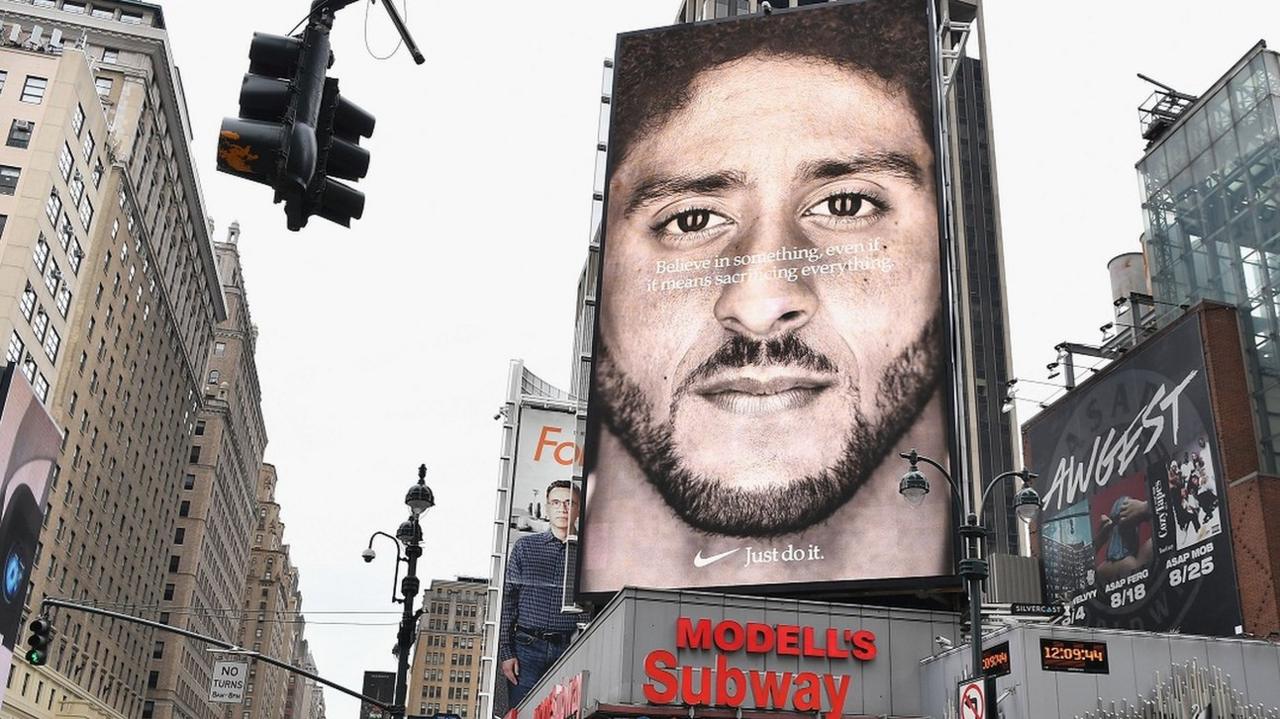Is the 'racist trainer' controversy good for Nike?
- Published
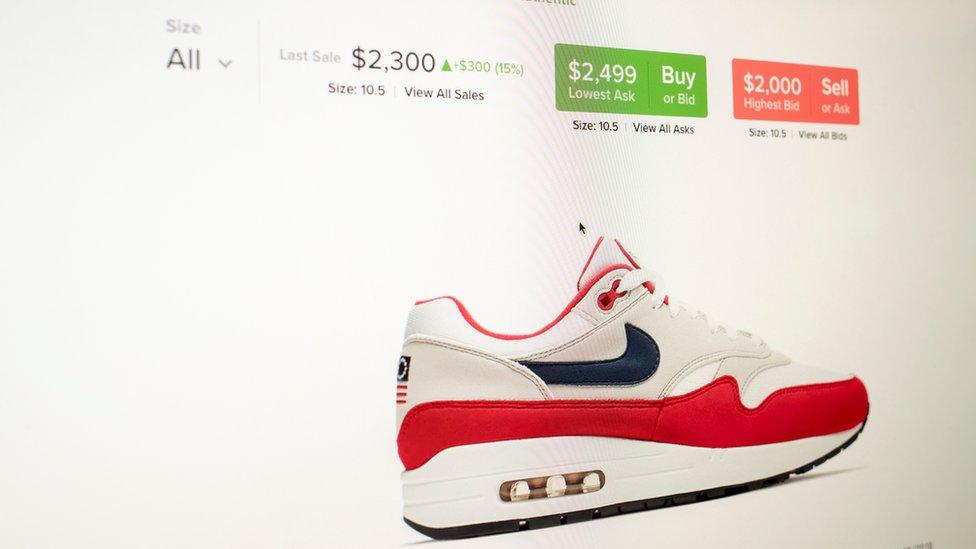
Nike's 'racist trainers' have been attracting sky-high bids online
It is a new day in the Nike "racist trainer" furore and no-one has - as yet - set fire to their own shoes.
However, the controversy has reignited the anger at the heart of America's gaping political divide.
Ahead of Independence Day, Nike has withdrawn a pair of special edition trainers because they allegedly feature racist symbolism.
The shoes are emblazoned by the country's "first flag", which was created during the American Revolution and is adorned with a circle of 13 stars representing the original colonies of the US.
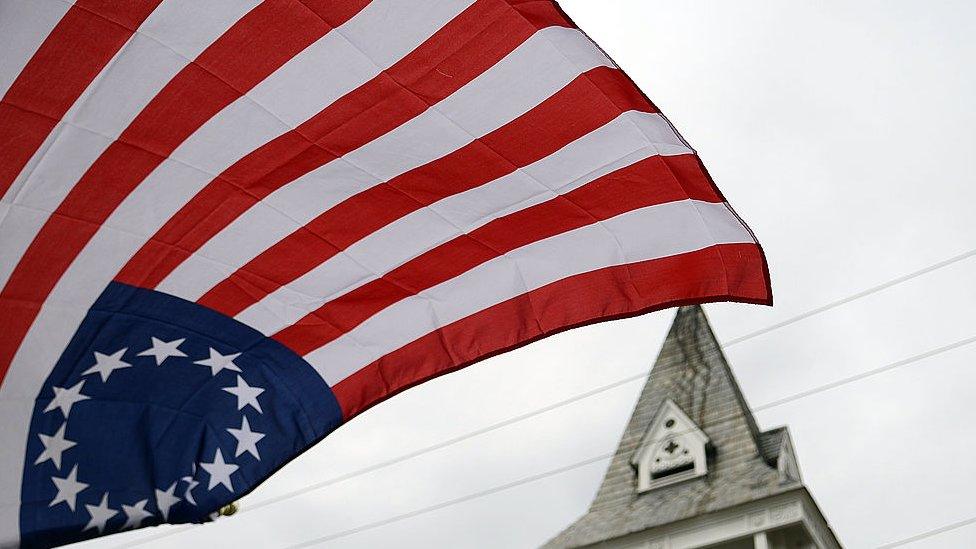
The US flag at the heart of the row
Nike said it was recalling the shoes because of "concerns that it could unintentionally offend and detract from the nation's patriotic holiday".
Colin Kaepernick, the former NFL quarterback and face of Nike's Just Do It campaign, apparently told the sportswear giant that the flag is offensive because it is associated with an era of widespread slavery in the US. Others reportedly raised concerns with Nike.
Meanwhile, the political right is raging, with Twitter alight with outrage at the "unpatriotic" withdrawal.
Arizona's governor Doug Ducey has rescinded a $1m grant for Nike to build a new factory; senator Ted Cruz has said he will never buy a pair of the company's trainers ever again; and senate majority leader Mitch McConnell declared: "If we're in a political environment where the American flag has become controversial to Americans, I think we've got a problem."
Brands specialist Rita Clifton, said: "America is a hotbed of identity clashes and politics is really forcing people to self-declare on where they are."
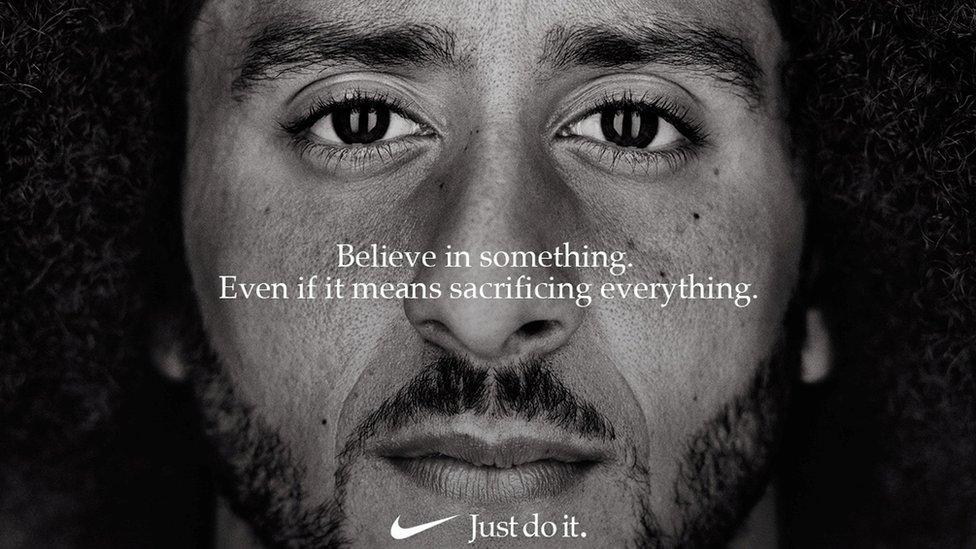
Colin Kaepernick, the former NFL quarterback fronted Nike's Just Do It campaign
Nike is a company that is used to controversy.
However, Richard Haigh, managing director at the consultancy Brand Finance, reckons that with the Air Max 1 Quick Strike Fourth of July trainers, Nike "seems to have put their foot in it".
A misstep
One of Nike's most recent provocative acts was to chose Mr Kaepernick to celebrate 30 years of the company's Just Do It slogan.
The sportsman famously knelt during the National Anthem at football games to protest racism against African-Americans, drawing the ire of some, including US President Donald Trump.
It prompted a sometimes-literally-fiery backlash by some, as well as the #BurnYourNikes hashtag on Twitter.
But the uproar had absolutely no impact on Nike's sales which have risen while its share price continues to perform well.
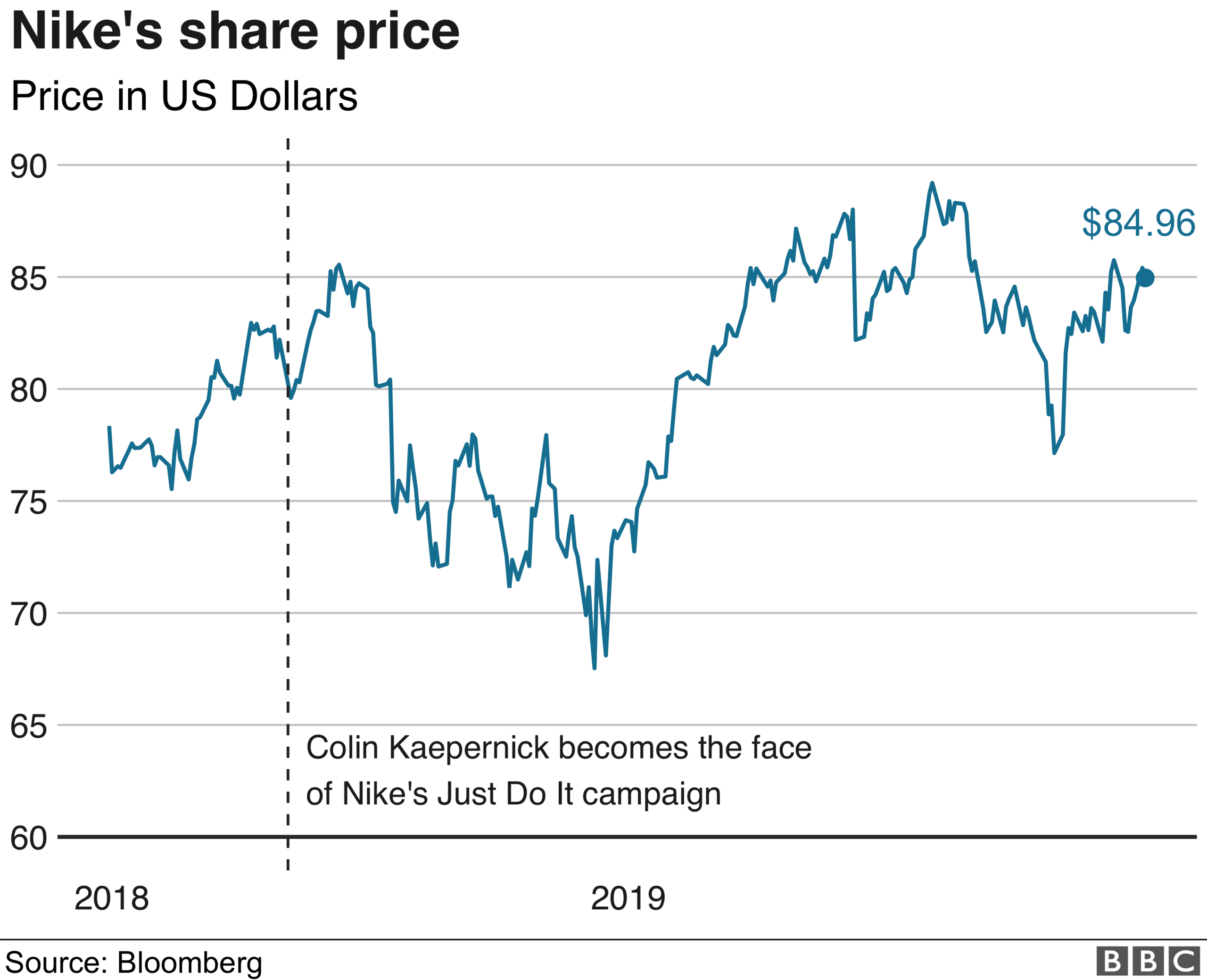
This latest event, however, is a misstep according to Mr Haigh.
"Most of Nike's controversial things have all been heading in the same political vein," he said. "They have all been controversial in choosing one side that is, in America, typically the side of the underdog it would seem."
While using Mr Kaepernick may have angered many, it also appealed to Nike core demographic of 18 to 34 year-olds.
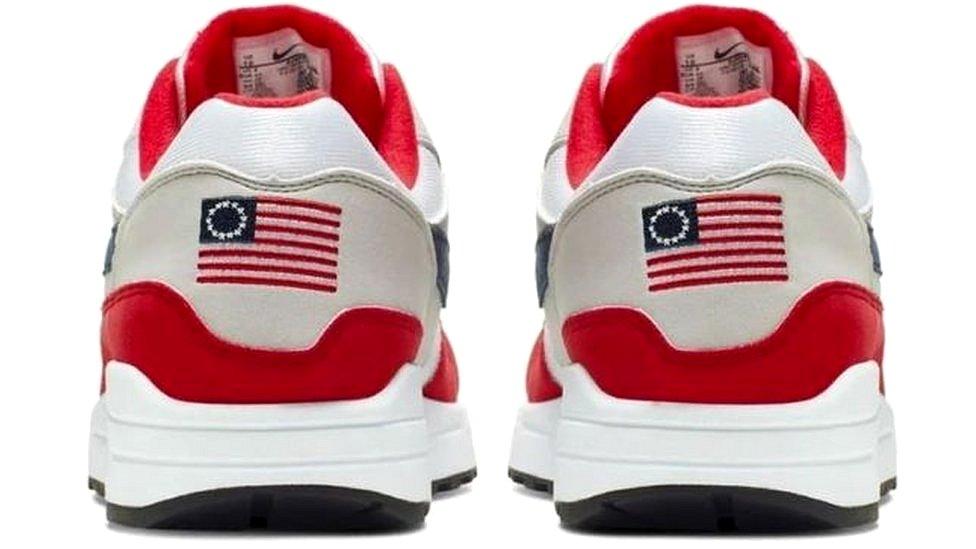
Nike withdrew the trainers featuring the "first flag" of the US
"The question is with the trainers, would it alienate more people than it will attract to the brand, and probably with the direction they have been going over the last few years," Mr Haigh said. "I have a feeling that if they were to stick behind it, it would alienate more people than it would attract."
Still, it is a surprise to some that Nike released the trainers in the first place.
Ms Clifton said: "Nike very rarely get this stuff wrong. They have got a great feel for the zeitgeist and the people who represent the zeitgeist.
"They have always been really good at recognising that in the right tone."
It is unlikely that the "racist trainer" row will hurt Nike's sales, despite efforts by Mr Cruz - once a US presidential hopeful - to get the hashtag #WalkAwayFromNike trending on Twitter.
While Nike asked retailers to return the special edition trainers, some managed to make it into the outside world with people bidding more than $2,000 for a pair online.
Mr Haigh said: "I think this one has been nipped in the bud so although it was a poor decision by them to release [the trainers] in the first place, I doubt that because they acted so quickly and removed it from the shelves there will be much of an impact."
- Published3 July 2019
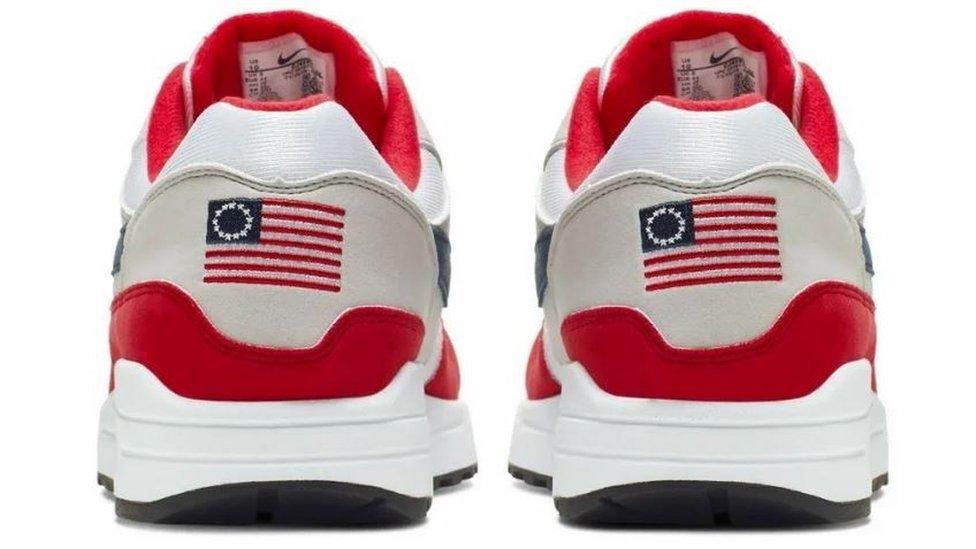
- Published25 September 2018
